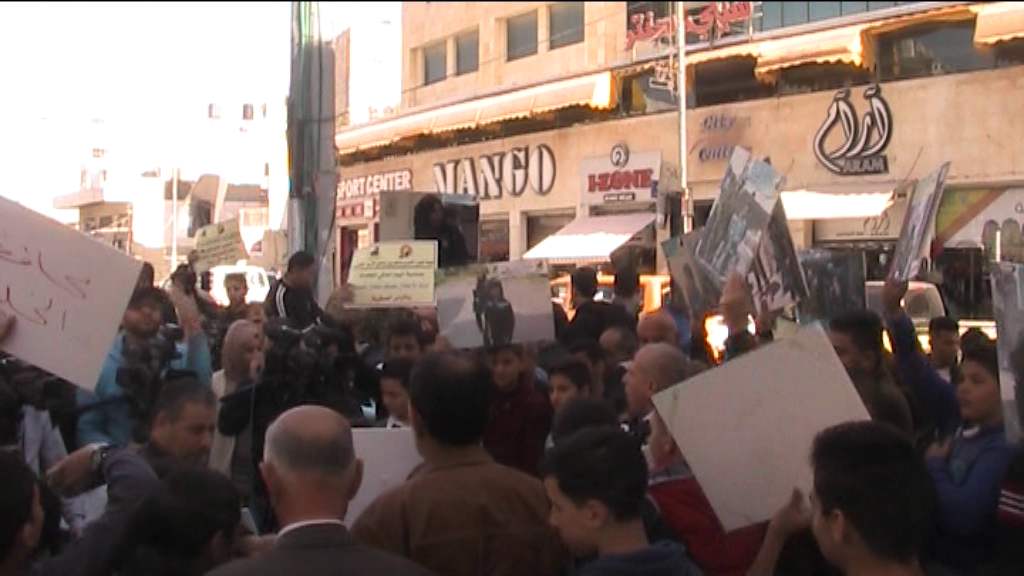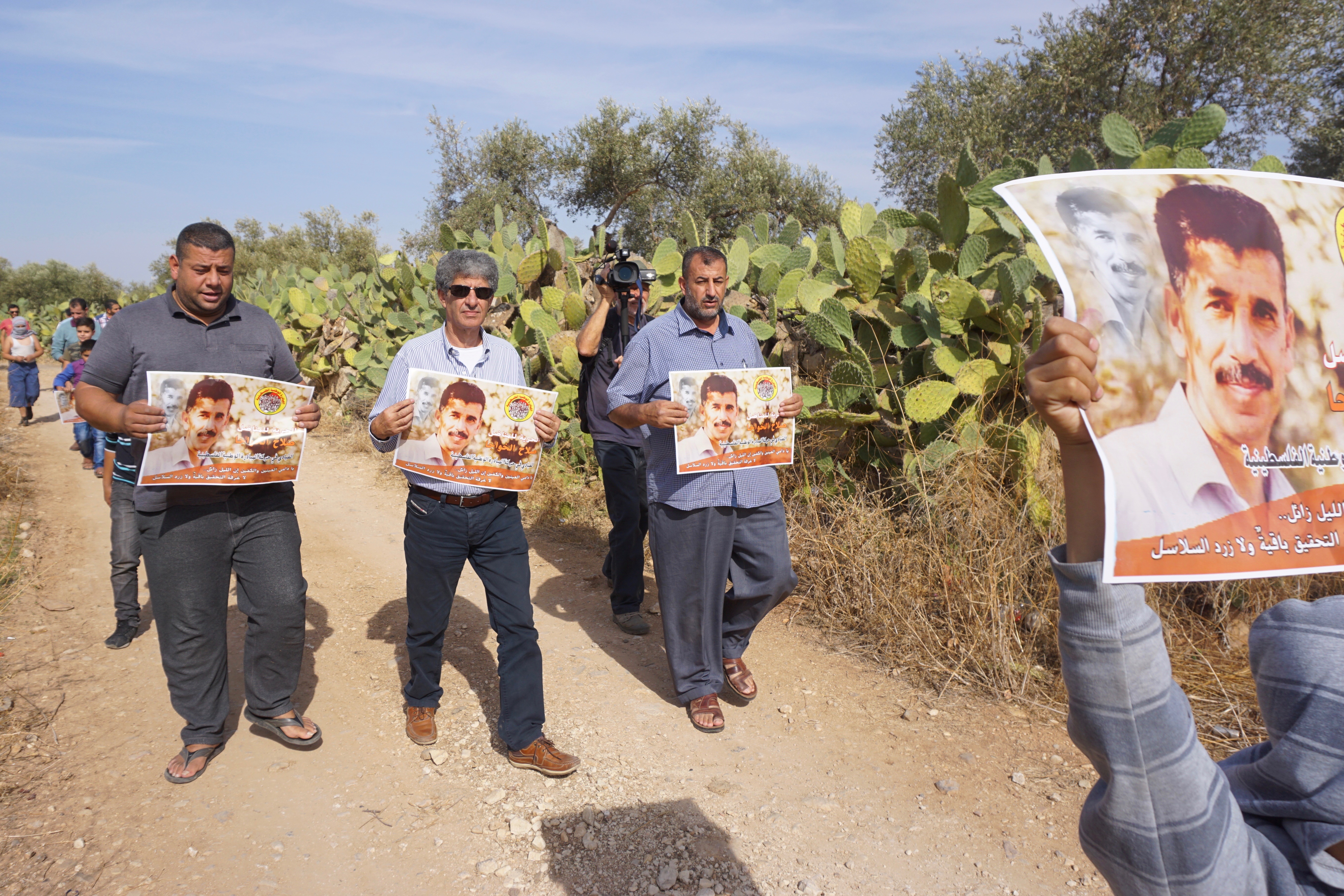Tag: Prisoner
-
Protest in central Hebron against child arrests
23rd November 2016 | International Solidarity Movement, al-Khalil team | Hebron, occupied Palestine Monday 21 November at Ibn Rushd Square, youth from Hebron gathered together with adults at a protest against the Israeli detention of Palestinian children. The protest was organized by the Prisoners Club and human right defenders who shared their information about over…
-
Call to action to #FreeSalah!
21st November 2016 | International Soldiarity Movement, Ramallah team | occupied Palestine On the morning of October 26th, Israeli forces raided the home of and arrested Salah Khawaja, a Palestinian human rights defender and Secretary of the Boycott, Divestment and Sanctions National Committee. ISM joins Stop the Wall and other human rights organizations asking Internationals…
-
Tortured youths of Aida refugee camp
20th November 2016 | International Solidarity Movement, al-Khalil team | Bethlehem, occupied Palestine On the evening of the 10th of October, a group of approximately 25 children playing outside the community center at the gate of Aida refugee camp, were suddenly, and without provocation, attacked by soldiers dressed in civilian clothing. Caught completely unawares and…



